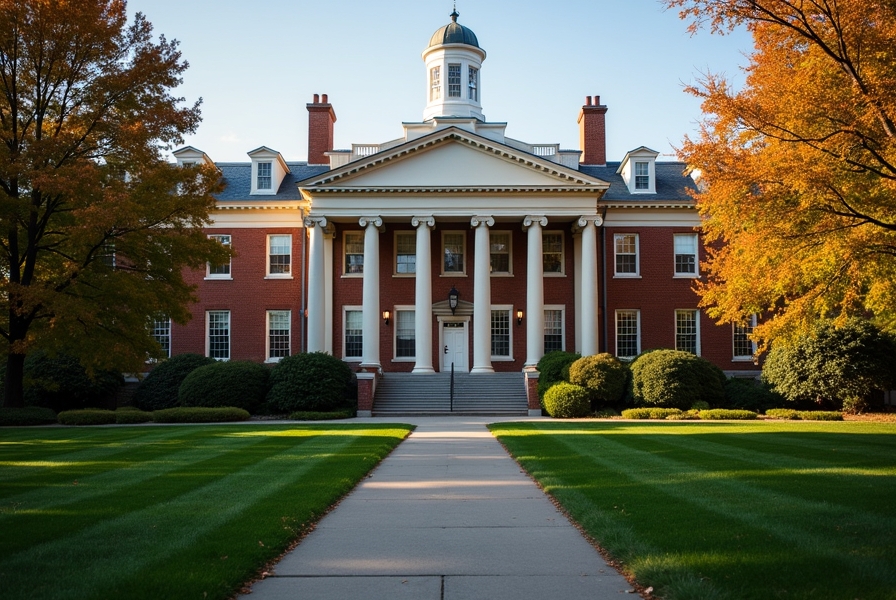Brown University and University of Pennsylvania Stand Firm on Higher Education Autonomy
Recent headlines have put Brown University and the University of Pennsylvania in the national spotlight. Both Ivy League schools made headlines by openly rejecting the Trump Administration’s proposed Higher Education Compact. This move brings up important questions about institutional autonomy, federal regulation in higher education, and the future of academic freedom on campuses across America.
Understanding the Trump Higher Education Compact
The Trump Higher Education Compact aimed to reshape how colleges and universities operate, especially relating to free speech, federal funding, and compliance with government guidelines. Its key points included:
- Mandates for stricter adherence to free speech principles on campuses
- Requirements for reporting international donations and partnerships
- Conditions linking federal funding to compliance with the Compact’s provisions
- Oversight mechanisms increasing government involvement in university decisions
Supporters argued the Compact would protect free expression and increase transparency. Critics, including many university leaders, saw it as federal overreach threatening academic independence.
Why Did Brown and UPenn Reject the Compact?
Brown University and University of Pennsylvania both issued statements emphasizing their commitment to academic freedom and institutional autonomy. Here’s why they declined to sign:
- Preserving Academic Freedom: Both schools argue that true academic excellence can only flourish in a space free from political influence.
- Existing Policies: University leaders highlighted robust existing policies that already guarantee free speech and transparency.
- Concerns Over Federal Overreach: Administrators expressed worry that attaching federal funding to compliance would set a dangerous precedent for government control over private institutions.
- Diverse Community Values: Both campuses voiced that fostering an inclusive, respectful campus climate remains a top priority — something they claim the Compact does not fully address.
Brown and UPenn’s choices were echoed by other elite schools, sparking a national debate on how much control the government should have over higher education.
Impacts on Students, Faculty, and the Future of U.S. Higher Education
You may wonder how these decisions affect students, faculty, and American colleges as a whole. The universities’ rejection sends a signal to:
- Prospective and Current Students: The schools are committed to independence and critical inquiry — factors important to applicants and parents.
- Faculty and Researchers: Professors and staff can expect continued freedom to teach, research, and advocate without governmental interference.
- Other Institutions: Brown and UPenn set a precedent, encouraging peer institutions to review their own stances and policies.
- Public Perception: The public now pays closer attention to how federal policy shapes university governance and campus culture.
Selective universities like Brown and UPenn play a vital role in national conversations about higher education policies, and their coordinated response has a ripple effect from admissions to funding decisions.
Contemporary Debates: Free Speech, Diversity, and Federal Oversight
This story is more than a single policy dispute. It brings together ongoing debates in U.S. higher education, including:
- The role of free speech on campuses
- How diversity, equity, and inclusion shape learning environments
- The line between government support and control in education
- Transparency about foreign partnerships and donations
- The influence of politics on curriculum and campus activities
Parents, students, alumni, and education advocates are all increasingly engaged in these conversations. You may see more open letters, campus forums, and national conferences on these topics in the coming months.
What Other Top U.S. Universities Are Saying About Federal Higher Education Policies
Brown and UPenn are not alone in their reservations. Other selective and Ivy League universities have taken similar steps. Harvard, Stanford, Yale, and MIT leaders have echoed concerns about the Compact’s scope and intent. Their public statements emphasize the importance of:
- Maintaining institutional independence
- Upholding free and open academic debate
- Ensuring diversity and inclusion reflect campus values, not just federal requirements
Every university must balance compliance with federal law and safeguarding its core mission. The outcome of these debates will likely shape the next generation of American higher education policy.
Frequently Asked Questions About University Responses to the Trump Higher Education Compact
Why did Brown and UPenn reject the Trump Higher Education Compact?
Brown University and the University of Pennsylvania rejected the Compact because they believe it infringes upon institutional autonomy, introduces unnecessary federal oversight, and does not align with their established policies on free speech and transparency.
How might this impact students applying to Ivy League universities?
Applicants may see these universities as champions of academic freedom and independent thought. The rejection signals that these schools prioritize principles important to diverse student bodies, such as inclusivity and freedom of expression.
Will this affect federal funding for Brown or UPenn?
As of now, rejecting the Compact does not automatically result in loss of federal funding. However, it does set up potential conflicts between universities and federal agencies, which could be negotiated or litigated in the future.
What are the main concerns with federal influence on higher education?
The main concerns include possible limits on curriculum design, faculty research, campus culture, and overall university governance. Academic leaders worry that federal mandates may lead to less flexibility and innovation on campuses.
Which college has the largest enrollment in the U.S.?
As of the 2023–24 academic year, Texas A&M University in College Station has the highest enrollment of any individual campus in the U.S., with approximately 77,491 students. It is followed by the University of Central Florida at around 69,316 students.
What This Means for the Future of American Colleges and Universities
The public stance taken by Brown University and the University of Pennsylvania reflects a growing desire in higher education to balance federal partnership with educational independence. You may see increased advocacy, policy changes, and ongoing debates about the future intersections of politics and academia. Stakeholders from all backgrounds are invited to participate in these essential conversations, shaping the direction of colleges and universities for years to come.










.svg)



